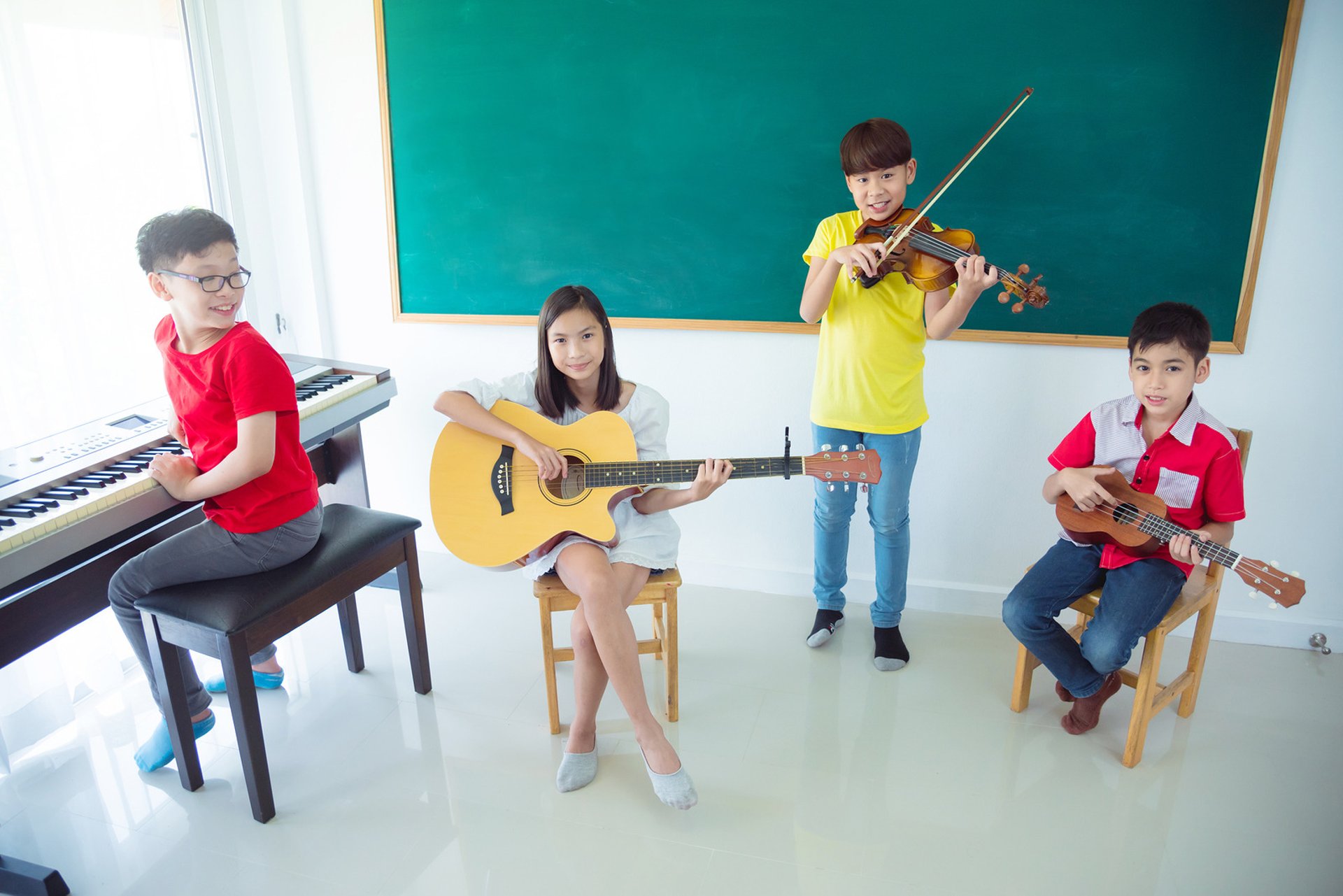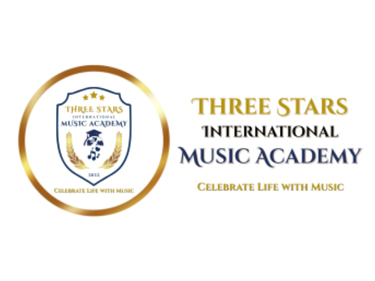
Top 5 Reasons Why Music Education Is the Best Investment for Your Child’s Future
In today’s fast-moving world of digital devices, academic competition, and ever-changing career landscapes, parents constantly search for the best ways to invest in their children’s futures. While coding boot camps, math tuition, and sports leagues often get the spotlight, one deeply impactful activity continues to shape successful, balanced individuals across the globe—music education. Music education is not just about learning to play the piano or strum a guitar. It’s a gateway to lifelong skills, emotional intelligence, and cognitive development. Whether your child dreams of a music career or simply wants a fun hobby, the benefits of learning music go far beyond performance. Music develops character, confidence, discipline, and creativity—the very traits that today’s and tomorrow’s leaders need. In this in-depth article, we’ll explore the Top 5 Reasons Why Music Education Is the Best Investment for Your Child’s Future, backed by science, educational research, and real-life success stories from music learners around the world.
6/16/20255 min read


Reason 1: Music Builds Brainpower and Academic Excellence
One of the strongest arguments in favor of music education is its profound impact on brain development and academic performance. Multiple studies show that children who engage in music learning—whether it’s guitar, violin, keyboard, or drums—develop enhanced memory, concentration, and problem-solving skills.
How Does Music Boost the Brain?
Neuroplasticity: Learning music creates new neural connections between the left and right hemispheres of the brain, improving cognitive flexibility.
Improved Math and Reading Skills: Children who learn rhythm and timing often show higher scores in mathematics and language comprehension.
Enhanced Memory: Memorizing notes, lyrics, and compositions trains both short-term and long-term memory.
Better Focus and Attention Span: Music practice requires deep concentration, helping children become more attentive in school.
Research Insights:
A 2020 study by the University of Southern California found that children who took music lessons had stronger neural processing and higher language development than their non-musical peers. Similarly, a study published in the Journal of Educational Psychology showed that students involved in music scored higher on standardized tests across reading and math.
Real-Life Result:
Parents of students at Three Stars International Music Academy often report better school performance within just 6 months of starting regular music lessons.
“After joining keyboard class, my son became more focused. He even scored top marks in math this term!” – A parent from Hyderabad
Reason 2: Music Cultivates Emotional Intelligence and Mental Health
In a world where anxiety, stress, and emotional burnout are rising even among children, music offers a healthy, expressive outlet. Music education teaches children how to understand, express, and manage their emotions—an essential life skill known as emotional intelligence (EQ).
How Does Music Support Emotional Well-being?
Self-Expression: Music allows children to communicate feelings they can’t put into words.
Stress Relief: Playing or listening to music reduces cortisol (the stress hormone) and releases dopamine (the happiness hormone).
Confidence Building: Performing in front of others helps children overcome stage fright and self-doubt.
Emotional Awareness: Different melodies, modes, and instruments help children recognize and relate to different emotions.
Music as a Mental Health Tool:
Music therapy is now being used to treat anxiety, ADHD, depression, and trauma in children.
Schools that incorporate music into daily routines report calmer, happier, and more engaged students.
At Three Stars:
We’ve seen shy, anxious children blossom into expressive, enthusiastic learners within months of starting classes.
“My daughter never spoke much, but after joining the group violin class, she started smiling more and making friends!” – Parent feedback
In today’s world, nurturing a child’s emotional health is just as important as academic success—and music is one of the few activities that does both.
Reason 3: Music Teaches Life-Long Discipline, Patience, and Focus
We live in an instant-gratification culture—where kids expect immediate results from their efforts. Music education counters this trend by teaching children to value consistent effort and delayed gratification.
Key Life Skills Taught Through Music:
Discipline: Regular practice builds habits of consistency and accountability.
Patience: Mastering an instrument takes time—kids learn to persist through mistakes and failures.
Goal-Setting: Whether it’s learning a scale or preparing for a recital, students learn how to set, track, and achieve goals.
Focus: Reading sheet music, coordinating both hands, and staying in rhythm sharpens attention spans naturally.
Why This Matters for the Future:
These qualities—discipline, patience, and focus—are exactly what modern employers and universities look for in candidates. Whether your child wants to become a scientist, architect, or entrepreneur, these character traits will serve them well.
Parent Perspective:
“Guitar lessons taught my son more about patience than any school subject. He now practices regularly without us reminding him!” – A proud dad from Chennai
At Three Stars, our instructors not only teach instruments but also help students build strong learning habits that apply to every part of life.
Reason 4: Music Fosters Creativity and Adaptability for a Changing World
The world your child will grow up in is unpredictable. Automation, artificial intelligence, and globalization are reshaping industries. The future will reward creative, adaptable minds—and music education is a proven way to develop both.
How Music Fuels Creativity:
Improvisation: Music encourages students to experiment, innovate, and trust their instincts.
Composition: Writing original music builds imagination and storytelling ability.
Cross-Disciplinary Thinking: Music connects math, science, language, and culture—making children better at seeing patterns and solving problems.
Adaptability: Playing in a group teaches kids how to adjust to others’ tempo and style—a valuable social skill.
Music in Career Development:
Even in non-musical careers, creative thinking is now a top priority. According to the World Economic Forum’s 2025 Future of Jobs report, creativity and emotional intelligence are among the top 10 skills needed for success.
“We’re hiring more musicians and artists in our tech firm because they bring fresh, human perspectives to problem-solving.” – CEO, TechStart Global
So, when you invest in music education, you're not just giving your child a hobby—you're preparing them for a future that rewards innovation, empathy, and flexibility.
👥 Reason 5: Music Builds Communication, Teamwork, and Confidence
Music is a social activity. Even when practiced solo, it prepares children to communicate more effectively, build relationships, and present themselves with confidence. Whether in a band, choir, or one-on-one class, music teaches collaboration and public speaking in a natural, enjoyable way.
How Music Enhances Communication:
Active Listening: Music trains students to listen closely—an essential skill in relationships and teamwork.
Non-Verbal Communication: Body language, eye contact, and expressions are all part of performing.
Empathy and Collaboration: Playing music with others teaches children to respect different roles, work in harmony, and support each other.
Boosting Confidence:
Public performance opportunities—such as recitals or group showcases—help children gain stage presence and overcome fear. The applause and appreciation they receive become powerful confidence boosters.
Life Skill Impact:
Whether your child grows up to give job interviews, deliver presentations, or lead teams, the communication and leadership skills learned through music will give them a powerful edge.
“I was terrified of public speaking, but singing in a duet taught me to express myself in front of people. Now I can speak in my school debates with ease!” – 14-year-old student from Three Stars
Bonus: Music Education Is a Lifetime Gift
Many activities fade with age, but music stays with you forever. A child who learns an instrument carries it into adulthood—often finding joy, stress relief, and social connection through music well into old age.
Think about it: Music is one of the few things that improves your brain, body, and soul at the same time. It’s not just a short-term class—it’s a gift for life.
How to Begin Your Child’s Music Journey
If you’re convinced about the benefits but unsure where to begin, here’s a simple action plan:
Choose an instrument: Keyboard, Guitar, Violin, Drums, or Ukulele.
Book a trial session: See how your child responds.
Set a fixed practice time: 20–30 minutes a day is enough to start.
Celebrate small wins: Encourage them every time they master a note or song.
Join a group class: This helps with social motivation and fun learning.
At Three Stars International Music Academy, we offer:
Personalized beginner-to-advanced classes,
Certified and passionate instructors,
Live online and in-person options,
A freemium learning app to practice at home,
Recitals and competitions to showcase progress.
Whether your child is 5 or 15, it’s never too early—or too late—to start.
Summary: The Smartest Investment You Can Make
In 2025, every parent wants to make the best possible investment in their child’s future. While school marks and tuition classes are important, they’re not the full picture. The most successful, balanced, and happy children are those who also develop emotional intelligence, creative thinking, discipline, and confidence.
Music education nurtures all of these skills and more.
So, when you invest in music classes, you're not just paying for lessons. You’re giving your child:
A smarter brain,
A calmer mind,
A more confident self,
And a lifelong friend in music.
🎶 Enroll your child today. Let their journey begin.
Because music isn't just an activity—it’s a legacy.
